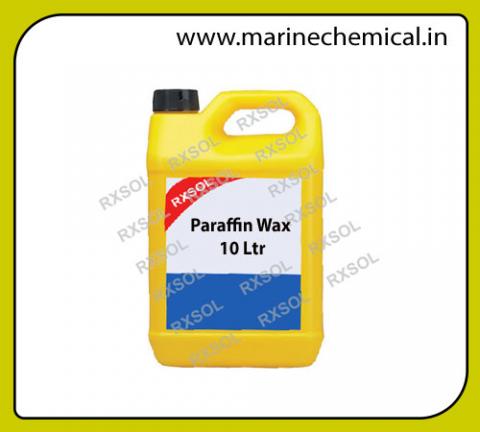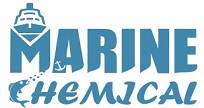
Paraffin Wax
Paraffin wax, colourless or white, somewhat translucent, hard wax consisting of a mixture of solid straight-chain hydrocarbons ranging in melting point from about 48° to 66° C 120° to 150° F. Paraffin wax is obtained from petroleum by dewaxing light lubricating oil stocks. It is used in candles, wax paper, polishes, cosmetics, and electrical insulators. It assists in extracting perfumes from flowers, forms a base for medical ointments, and supplies a waterproof coating for wood. In wood and paper matches, it helps to ignite the matchstick by supplying an easily vaporized hydrocarbon fuel.
- In industrial applications, it is often useful to modify the crystal properties of the paraffin wax, typically by adding branching to the existing carbon backbone chain. The modification is usually done with additives, such as EVA copolymers, microcrystalline wax, or forms of polyethylene.
- In a histology or pathology laboratory, paraffin wax is used to impregnate tissue prior to sectioning thin samples of tissue.
- Candle-making
- Wax carving
- Bicycle chain lubrication
- Coatings for waxed paper or cloth
-
Food-grade paraffin wax:
- Shiny coating used in candy-making; although edible, it is nondigestible, passing through the body without being broken down
- Coating for many kinds of hard cheese, like Edam cheese
- Sealant for jars, cans, and bottles
- Chewing gum additive
- Investment casting
- Anti-caking agent, moisture repellent, and dustbinding coatings for fertilizers
- Agent for preparation of specimens for histology
- Bullet lubricant – with other ingredients, such as olive oil and beeswax
- Phlegmatizing agent, commonly used to stabilise/desensitize high explosives such as RDX
- Crayons
- Solid propellant for hybrid rocket motors
- Component of surfwax, used for grip on surfboards in surfing
- Component of glide wax, used on skis and snowboards
- Friction-reducer, for use on handrails and cement ledges, commonly used in skateboarding
- Ink. Used as the basis for solid ink different color blocks of wax for thermal printers. The wax is melted and then sprayed on the paper producing images with a shiny surface
- Microwax: food additive, a glazing agent with E number E905
- Forensic investigations: the nitrate test uses paraffin wax to detect nitrates and nitrites on the hand of a shooting suspect
- Antiozonant agents: blends of paraffin and micro waxes are used in rubber compounds to prevent cracking of the rubber; the admixture of wax migrates to the surface of the product and forms a protective layer. The layer can also act as a release agent, helping the product separate from its mould.
- Mechanical thermostats and actuators, as an expansion medium for activating such devices
- Potting guitar pickups, which reduces microphonic feedback caused from the subtle movements of the pole pieces
- Potting of local oscillator coils to prevent microphonic frequency modulation in low end FM radios.
- Textile manufacturing processes, such as that used for Eisengarn thread.
- Wax baths for beauty and therapy purposes
- Thickening agent in many paintballs
- Moisturiser in toiletries and cosmetics such as Vaseline.
- Prevents oxidation on the surface of polished steel and iron
-
Phase change material for thermal energy storage
- MESSENGER (Mercury spacecraft) When the spacecraft was unable to radiate excessive heat.
- Manufacture of boiled leather armor and books
- Skateboard wax
- Paraffin microactuator
- Neutron radiation shielding
- Waterproofing agent for waxed cotton garments and commercially important in the early water proofing of ship sails.
- In Occupational and Physical therapies paraffin wax baths are used to warm and loosen connective tissue. They are mainly used in hand therapy.
- Used as the main additive in Log Sealers
- Liquid Paraffin is used in Fire-breathing.
| PRODUCT NAME | : | PARAFFIN WAX |
| CAS number | : | 8002-74-2 |
| UN number | : | |
| Formula | : | HOOCCOOH.2H2O |
| Odour | : | ODOURLESS |
| Solubility in water | : | INSOLUBLE |
| Density | : | 0.90 at oC |
| Boiling point | : | oC |
| Melting point | : | 56 oC |
| Viscosity | : | |
| Flashpoint | : | 199 oC |
| Explosive limits | : | |
| Vapour pressure | : | |
| Skin absorption/irritation | : | NO |
| TLV Country NL Year 1995 | : | ppm 1mg/m3 |
| Pollution category 1994 | : | III |
PARAFFIN WAX manufacturer, exporter and supplier Mumbai, Gandhidham, Chennai, Visakhapatnam, Kolkata, Fujairah, Dubai, Sharjah, Abudhabi, Ajman, Muscat Oman Barka, Nairobi Kenya Africa, Canada
Paraffin wax is mostly found as a white, odorless, tasteless, waxy solid, with a typical melting point between about 46 and 68 °C (115 and 154 °F), and a density of around 900 kg/m3. It is insoluble in water, but soluble in ether, benzene, and certain esters. Paraffin is unaffected by most common chemical reagents but burns readily. Its heat of combustion is 42 MJ/kg.
Paraffin wax is an excellent electrical insulator, with a resistivity of between 1013 and 1017 ohm metre. This is better than nearly all other materials except some plastics (notably Teflon). It is an effective neutron moderator and was used in James Chadwick's 1932 experiments to identify the neutron.
Paraffin wax is an excellent material for storing heat, with a specific heat capacity of 2.14–2.9 J g−1 K−1 (joules per gram kelvin) and a heat of fusion of 200–220 J g−1. Paraffin wax phase-change cooling coupled with retractable radiators was used to cool the electronics of the Lunar Roving Vehicle during the manned missions to the Moon in the early 1970s. Wax expands considerably when it melts and this allows its use in wax element thermostats for industrial, domestic and, particularly, automobile purposes.




